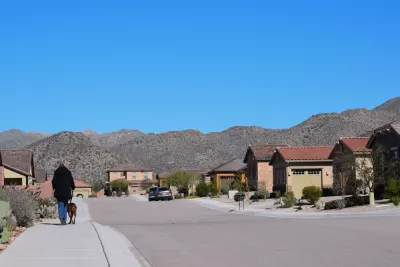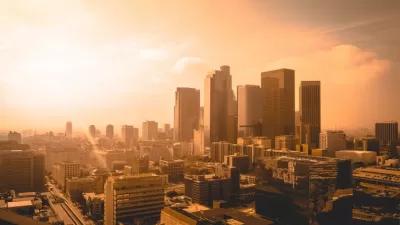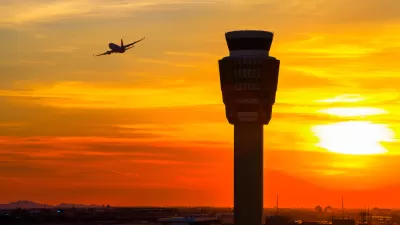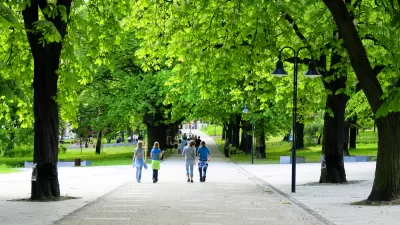Details and background of Tucson's pledge to plant one million trees by 2030.

Tucson Mayor Regina Romero in February announced a pledge to plant one million in the hot semi-arid city by 2030.
At the time, Mayor Romero joined the 1t.org US Chapter Stakeholder Council, a group of public, private and nonprofit leaders committed to the restoration of 1 trillion trees globally. Quinn McVeigh reports on the city's pledge in an article providing background and details.
"Romero, urban forestry manager Nicole Gillet, and local groups such as Tucson Clean and Beautiful, are prioritizing tree-planting in low-income communities, which are disproportionately burdened by Tucson's urban heat island effect," according to McVeigh.
A 2019 report by Climate Central found that neighborhoods in the city with predominantly Latino populations are 4 to 5 degrees Fahrenheit warmer than the average city temperature—an issue caused and exacerbated by numerous economic forces. Quinn writes: "In the desert Southwest, the extra heat that low-income neighborhoods endure often coincides with lack of air conditioning. Many households must choose between air conditioning, healthcare, and food, one University of Arizona paper said." Tucson is not alone in facing the challenge of addressing the inequities of shade and heat in U.S. urban areas.
Among the details of the plan reported in the article is a section on how Tucson will provided the water needed for the new trees to survive the ongoing, historic drought in the Southwest United States.
FULL STORY: Planting a million trees in the semi-arid desert to combat climate change

Alabama: Trump Terminates Settlements for Black Communities Harmed By Raw Sewage
Trump deemed the landmark civil rights agreement “illegal DEI and environmental justice policy.”

Planetizen Federal Action Tracker
A weekly monitor of how Trump’s orders and actions are impacting planners and planning in America.

Why Should We Subsidize Public Transportation?
Many public transit agencies face financial stress due to rising costs, declining fare revenue, and declining subsidies. Transit advocates must provide a strong business case for increasing public transit funding.

Understanding Road Diets
An explainer from Momentum highlights the advantages of reducing vehicle lanes in favor of more bike, transit, and pedestrian infrastructure.

New California Law Regulates Warehouse Pollution
A new law tightens building and emissions regulations for large distribution warehouses to mitigate air pollution and traffic in surrounding communities.

Phoenix Announces Opening Date for Light Rail Extension
The South Central extension will connect South Phoenix to downtown and other major hubs starting on June 7.
Urban Design for Planners 1: Software Tools
This six-course series explores essential urban design concepts using open source software and equips planners with the tools they need to participate fully in the urban design process.
Planning for Universal Design
Learn the tools for implementing Universal Design in planning regulations.
Caltrans
Smith Gee Studio
Institute for Housing and Urban Development Studies (IHS)
City of Grandview
Harvard GSD Executive Education
Toledo-Lucas County Plan Commissions
Salt Lake City
NYU Wagner Graduate School of Public Service





























